International Trade, Finance, Investment: A Detailed Report
VerifiedAdded on 2020/04/21
|5
|808
|264
Report
AI Summary
This report examines the intricate relationship between international trade, finance, and investment, focusing on the role of financial markets in allocating capital resources. It begins by defining financial markets as platforms for exchanging monetary assets like stocks and bonds, crucial for both domestic and international capital allocation. The report emphasizes how effectively capital resources are utilized, which significantly impacts a country's economic health. It explores how financial markets channel funds to investment projects, maximizing returns, and discusses the use of economic tools like Tobin’s Q to assess investment attractiveness. The report delves into specific market sectors, including the stock and bond markets, and how they facilitate capital allocation. It also touches on Foreign Direct Investment (FDI) and its dependence on investment prospects. Finally, the report acknowledges the limitations of financial markets, highlighting that factors beyond the market also influence capital allocation, such as overall economic performance and government policies.
1 out of 5
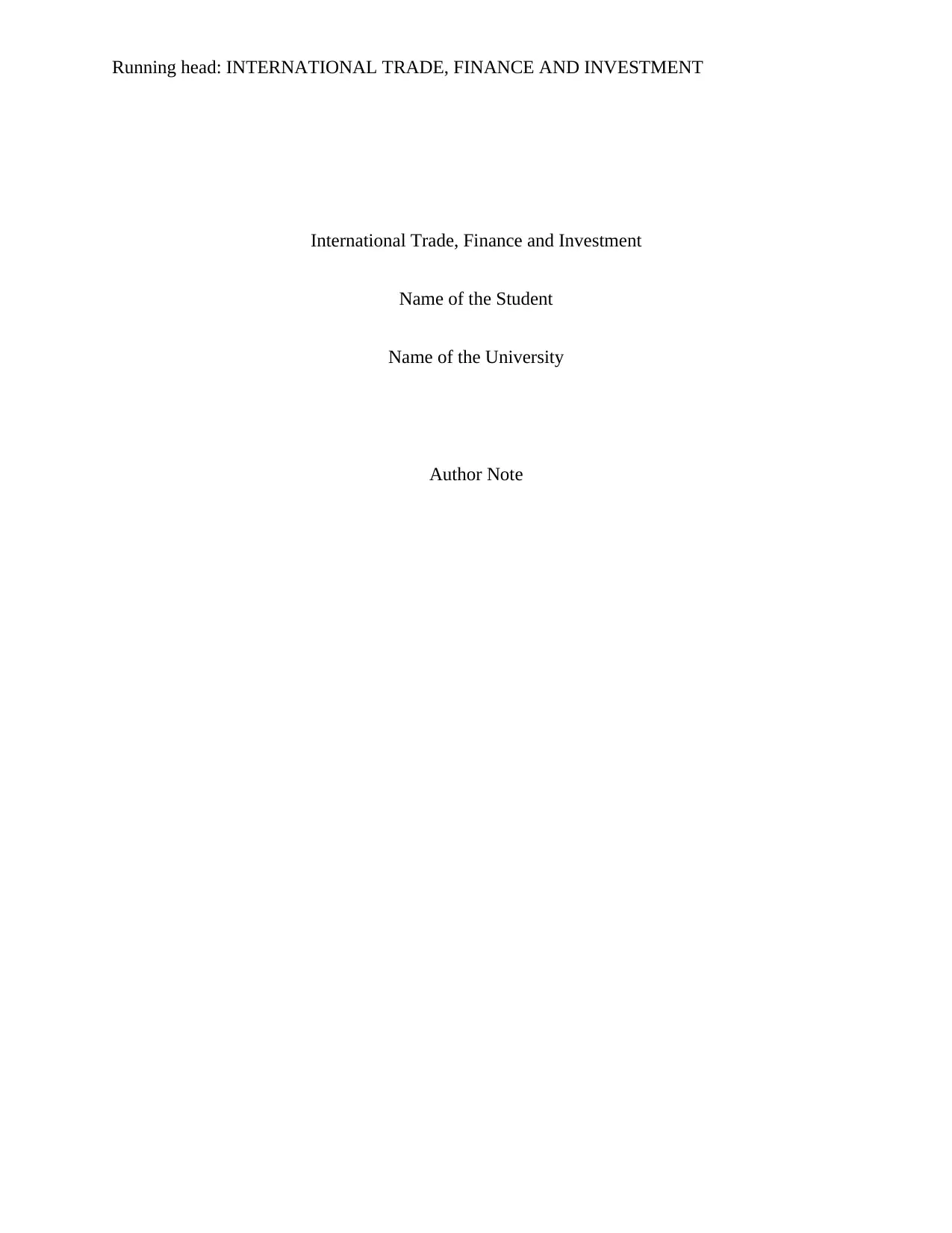
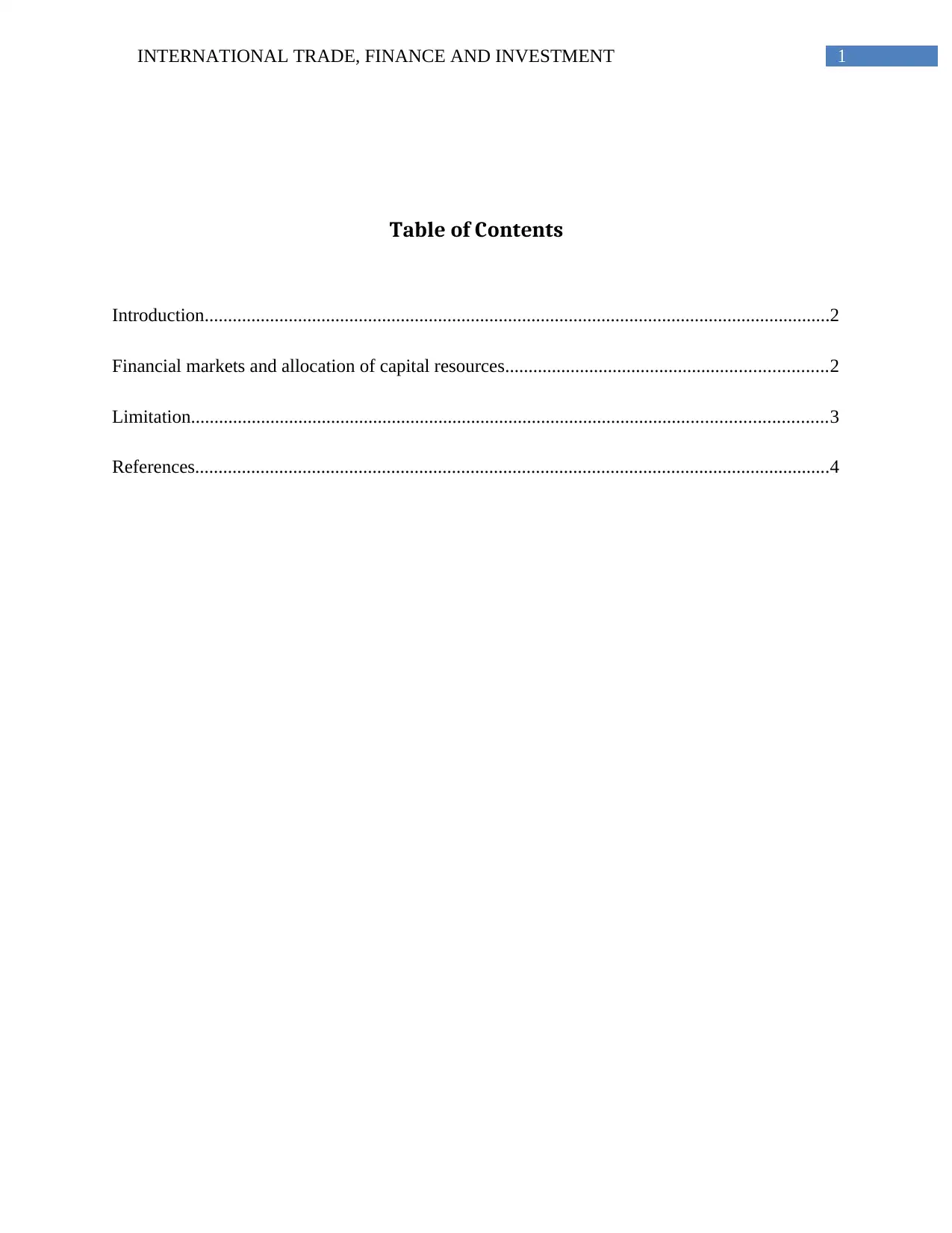
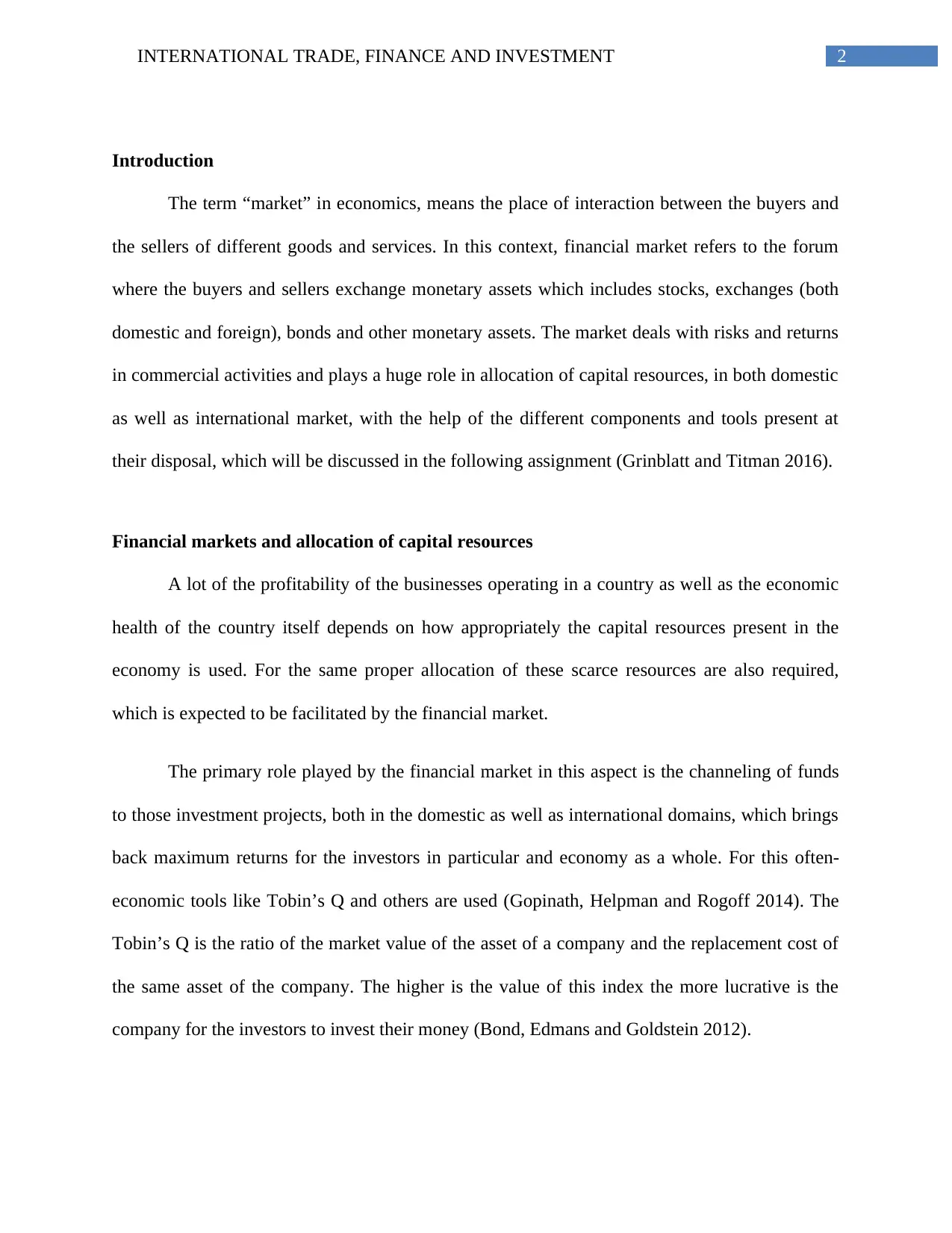

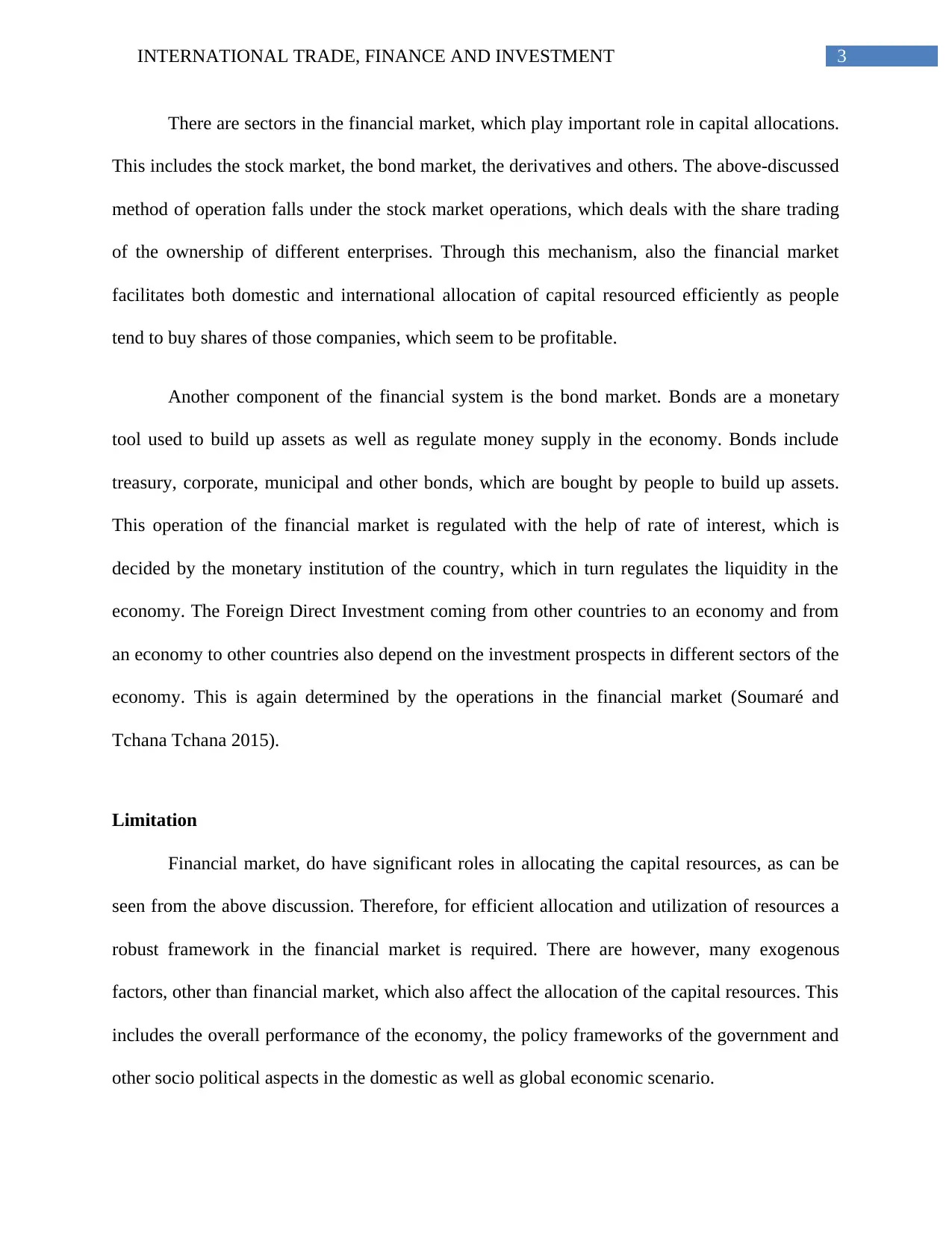
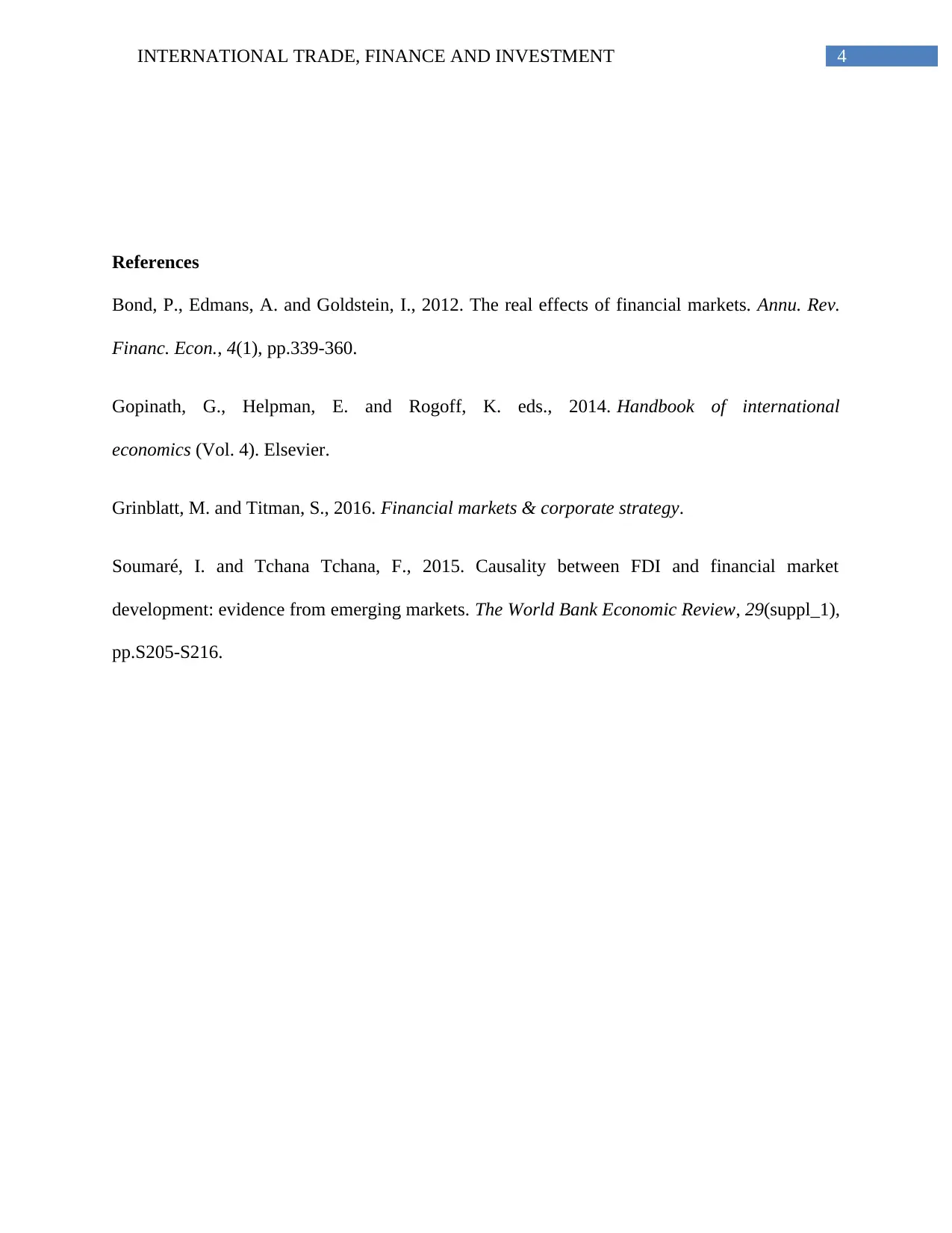



![[object Object]](/_next/static/media/star-bottom.7253800d.svg)